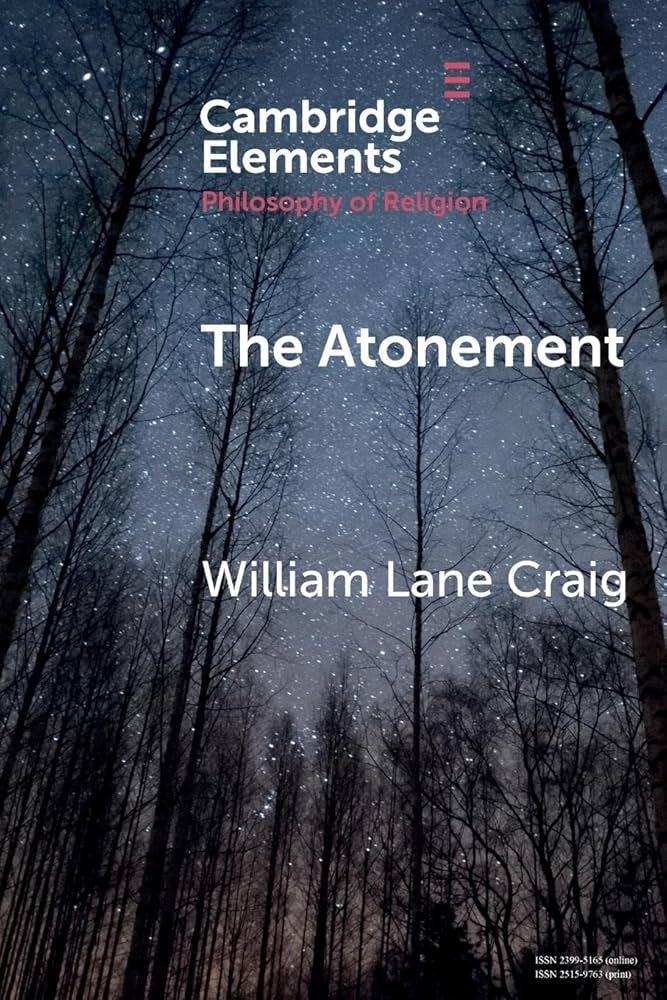Conversion Review: Philip Goff
Christianity gains a new smart person
Howdy! :) If you want to support me—a lowly, lowly student dressed in sackcloth and ashes, tears in my eyes, etc.—consider upgrading your subscription and growing Awol’s Army! I’ll make it well worth your while (wink, wink). Now, on with the show…
First off, I apologise for the title. Religious conversions are profound and personal matters, not public entertainment or fodder for star-ratings. However, the idea of a conversion review is funny to me, and that’s always the deciding factor.
Though I won’t be ranking Goff’s conversion to Christianity from one to ten or anything, I do want to consider the flavour of Christianity he’s wound up with. (I should also say, before I dive in, that I like Philip a lot. He generously came on my YouTube channel to debate taxation with
, and forgave me when I accidently got our beers mixed up at Wetherspoons [Wetherspoons—abbrv. “Spoons”, “Wethers”—is a delightfully thrifty pub chain and England’s answer to Hell].)I. Background
Philip Goff is an elite, S-tier philosopher. Author of Galileo’s Error (a defence of panpsychism) and Why? The Purpose of the Universe (which charts a surprisingly plausible course between God and traditional atheism, churning out a list of spooky hypotheses—a God of limited power, teleological laws that govern the universe, etc.—in an attempt to explain the fine-tuning of physics without falling afoul of the problem of evil.)
Evidently, since Why? was published, Goff has drifted more in the direction of the limited God view—the view that God exists but has limits on his power. (Specifically, if I recall Goff’s theory from a talk he gave in Oxford, the limits on God’s power are such—on Goff’s preferred way of spelling things out, at least—that God can create and fine-tune the initial stage of a universe, but can’t miraculously intervene willy-nilly once it’s begun expanding.) He’s also been attending Anglican church services and worshipping as a religious fictionalist, treating Christianity as if it’s true—living out the fiction, as it were—without managing to quite believe in it.
The other day, Christian YouTuber Cameron Bertuzzi aired an interview with Goff on his conversion and the considerations leading up to it:
Stand back and cover your ears: it’s time for a bomb review.
II The Gospel According to Philip
Theosophically, Goff is in a bind. According to Goff’s preferred form of theism, while God can create the universe and set up its physical laws, he can’t monkey around with them once the universe has been created. The reason Goff’s view is set up this way is to explain fine-tuning while dodging the problem of evil. After all, if God can’t miraculously intervene in the world, he can’t save a fawn from a forest fire, or stop Murray Rothbard from writing books.
Equally though, if God can’t suspend to laws of physics to prevent evils, he can’t suspend them to perform miracles, either. Thus, on Goff’s telling, there can be no virgin birth, no water to wine, no multiplying loaves and fishes. Why do the Gospels say these things happened? Because—Goff says—the Gospels are sometimes wrong.
So, in what sense is Goff a Christian? What of traditional Christianity does he accept, and what does he cast aside? Here’s some of what Goff has shared about his worldview so far, and my uninvited comments thereon:
a. the doctrine of the atonement
According to Christianity, Christ dying has something to do with you being saved. Beyond that, though, it’s not obvious what Christians are committed to. Unlike the doctrine of the trinity, say, or the doctrine of the incarnation, we don’t have any infallible, conciliar proclamations on what Christ’s atonement consists in, or how it’s supposed to work.
Taking cue from scripture and philosophy, Christians have developed a range of atonement theories to fill in this gap. Penal substitution theory—which has its roots in the early protestant reformers—says Christ took on the suffering that was owed to us, in light of our manifold wickedness. According to the most popular version of penal substitution, Christ was intentionally punished for our sins, as opposed to merely taking on the suffering that would have been our punishment had we been subjected to it.
According to Goff, penal substitution—at least of the intentional punishment variety—is a theory on crack, “one of the most implausible theological doctrines in any of the modern global religions”.
In my last year of school, I met the Christian philosopher William Lane Craig, who gave me a short book of his defending penal substitution.
Since Craig is probably penal substitution’s best defender, I’ll say what I think is wrong with his defence of it.
In a 2018 paper, Craig complains that “[t]he doctrine of penal substitution is almost invariably dismissed by its critics in a single paragraph, even a single sentence, to the effect that it would be unjust of God to punish an innocent person for others’ sins, end of discussion.”1
Fair enough. Not only will I write Craig one paragraph; I will write him several more.
Some people—like Goff—object to the punitive version of penal substitution on the grounds that it’s wrong for God to punish an innocent person (e.g., Christ), and a perfect being can do no wrong. (If you’re a modified divine command theorist like Craig, and you think God has no moral obligations because he doesn’t tell himself what to do, just swap “a perfect being can do no wrong” for “a perfect being has justice necessarily built into his nature, which constrains the things he can do”.)
I think Craig’s reply here is pretty reasonable: the duty not to punish innocents is only pro tanto. Even if you’re not a consequentialist, you can admit that some goods—e.g., the salvation of all mankind—are great enough to override the strong pro tanto reasons against subjecting an innocent to hard treatment (at least if subjecting an innocent to hard treatment is necessary to obtain said good.) If that means Elizabeth Anscombe doesn’t want to talk to me, so be it. I didn’t even want to talk to her anyway. 🙄
(Side note: though I agree that the duty not to punish innocents is only pro tanto, I find Craig’s way of arguing for our view pretty puzzling. Instead of rolling up his sleeves and doing regular old normative ethics—showing the implausibility of absolutist prohibitions of punishing innocents with a string of theoretical considerations and hypothetical cases—Craig’s argument is that in our current legal system, innocent people are sometimes held criminally liable for things like selling meds to someone who gave them a forged prescription, even though the seller didn’t know the prescription was forged. The implied argument seems to be: “Look, if you think it’s never OK to punish the innocent, you’ll have to say that aspects of our current legal system are unjust! Are you really prepared to bite that bullet?”.)
My concern is with the thought that punishing Christ is necessary for God to achieve his ends. Craig writes:
Now it might be asked why, if there are weightier considerations prompting God to waive the demands of negative retributive justice in Christ’s case, He did not instead waive the demands of positive retributive justice and offer everyone a general pardon for sin. […] As Abelard and Grotius saw, so doing was a powerful display of both God’s love of people and His hatred of sin, which has proved powerfully attractive throughout history in drawing people to faith in Christ, especially as they themselves face innocent suffering.2
I agree it’s possible that not just Christ’s passion and death, but the part of it that allegedly involved God the Father punishing Christ, drew more sinners to convert to Christianity than they otherwise would have (and in large enough numbers that the good of their conversions overrode the pro tanto presumption against punishing innocents.) But I don’t think this possibility is independently plausible: Christ dying at the hands of the Romans is the part of the passion that demonstrated God’s love. So—it seems—the only part of the passion that demonstrated how much God hates sin is God’s own infliction of hard treatment on Jesus. But it’s easy to imagine lots of ways in which God could publicly demonstrate his hatred of sin without having to punish an innocent. For example: by publicly unloading wrath, in extreme but finite quantities, on a person or set of people who really did deserve that wrath, and volunteered themselves for a public demonstration in a spirit of penitence. If you didn’t know about Christianity, and someone asked you to cook up a way for God to effectively communicate how much he hates sin, punishing an innocent is probably the last thing you’d think of—indeed, you’d probably give that option lower odds than God publicly unloading his rage on a stuffed animal with a “SINNER” label taped to its forehead. In that the scenario, there wouldn’t even be a pro tanto moral presumption against God’s actions.
Like Craig says, the atonement is a multifaceted jewel: you can concede that Christ’s death had expressive power, and that that expressive power has helped draw lots of people to Christ, without maintaining that the God-punishing-Christ part of the atonement was necessary to maximise conversions, or that this is a credible possibility.
Craig also has a response to the Lizzy Anscombes of the world, who think punishing the innocent is never OK: to wit, deny that Christ is legally innocent before God, because our the guilt for our sins was imputed to Christ.
Again, Craig defends the moral plausibility of this view by appealing to actual practice in our legal system: sometimes, as a legal fiction, courts knowingly and openly attribute wrongdoing to people who did nothing wrong, so that they can go ahead and punish them.
Analogously, Craig suggests, God could knowingly and falsely attribute the guilt for our sins to Christ, so that—under the divine analogue of the legal system—Christ counts as forensically guilty, making him a fitting target of punishment.
My reply: obviously, Elizabeth Anscombe would not be persuaded by this, nor should someone with her views be. To impute guilt is to attribute guilt. So, the idea is that God is just falsely attributing guilt to Jesus—who in fact did nothing wrong—and then subjecting him to hard treatment.
I wonder if Craig thinks Anscombe would have been persuaded by the following executioner’s letter:
Dear Liz,
I know you think I have a corrupt mind for executing Pope Innocent the Innocent and are now refusing to talk to me. But I don’t think you understand my position: you see, before I executed the innocent Pope, I falsely attributed guilt to him.
I hope we can be friends now,
G. R. M. Reaper.
If the argument that it’s OK to punish the innocent is that there are cases in our current legal system where courts have falsely attributed guilt to innocents and then gone on to punish them, no absolutist critic of punishing innocents will care about this, because they’ll hungrily bite the Extremely Implausible Bullet that the legal status quo is unjust sometimes, and that this is one of those cases.
I conclude: Goff’s rejection of penal substitution is pretty based.
b. Jesus’ resurrection body
According to Goff’s version of Christianity (which he only has around a 50% credence in), Jesus of Nazareth did literally resurrect, but his resurrection body wasn’t physical. (It wasn’t a divinely induced hallucination, either—Jesus’ resurrection body had a special kind of physicality, being “transformed into a radically new form of physicality, perhaps a kind of formless energy.”)
Idk man, maybe, but the reason Goff gives in his aeon article for adopting this view don’t seem especially obvious to me. According to Goff, one reason he likes this view is that “[i]f Yeshua rose as a physical body that could be seen and touched, then surely he could have revealed himself to millions, making the existence of God and the truth of Christianity an indisputable historical fact.”
But, I mean, as Lydia McGrew pointed out somewhere on Facebook, it’s not clear how this solves the problem: if Jesus’s formless energy body can be witnessed by some people, why can’t it be witnessed by millions of people. (Of course, it’s possible to come up with a story of why Jesus’ formless energy body can’t be seen by millions of people, but the question is whether such a story will be ad hoc.)
c. panentheism
Goff also affirms panentheism:
The idea of God I received as a child was of something completely separate from the universe. However, there are versions of the God hypothesis that don’t see things in such binary terms. There are pantheists, who think that ‘God’ and ‘the universe’ are simply different words for the same thing. This seems like just atheism repackaged. But there are also pan-en-theists, who don’t quite identify God and the universe, but nor do they think they’re entirely separate. Panentheists believe there is an intimate connection between God and the universe; the two overlap. The universe is in some sense inside God, and perhaps God is inside the universe.
However, panentheism is famously hard to define. What, exactly, separates is from other models of God? In “The Problem of Demarcating Panentheism”, Ryan Mullins shares the following anecdote:
A few years ago, the World Parliament of Religions hosted a session on panentheism. Various contemporary panentheists gave papers discussing the major themes of this model of God. Others argued that particular historical thinkers should rightly be understood as panentheists instead of theists or pantheists. Overall, there was a celebration of the diversity of perspectives within panentheism. However, not all were able to celebrate. Patrick Hutchings was asked to chair the session. After chairing the session he reports to ‘emerging no wiser than when I entered’ as to what panentheism in fact is. He claims that if he were to commit himself to panentheism, it would not be clear that he would be committing himself to anything. Ultimately, Hutchings wants to know what exactly are the unique claims of panentheism that demarcate it from its rivals. He acknowledges that a religious movement or model of God can have a variety of perspectives within it, but he wants a definitive concept of panentheism that unites these diverse perspectives. Raphael Lataster acknowledges Hutchings’ wish to have a definitive concept of panentheism yet does not offer one. In the midst of extolling the diversity within panentheism, Lataster claims that Hutchings ‘wish might remain forever unfulfilled.’
Goff is a top-notch philosopher, so I’m sure he knows what he means by panentheism. Unfortunately—given that the aeon piece was so short—I don’t know what Goff means by panentheism, so I can’t comment on his version of it. (Goff reports that “[t]hese ideas of the Divine resonate with me spiritually”; I’m glad to hear that, whatever “these ideas of the Divine” amount to.)
III.
I was delighted to hear about Goff’s conversion. It sounds like his life has improved, and he’s had the courage to pick a religion and wager on it—something I haven’t had the courage to do yet (though if I had to now I’d pick Hinduism, because of all the evidence for it).
There’s been a lot of in-house debate since Goff’s article as to whether he’s really a “Christian”. In my view, there’s nothing mean-spirited or judgemental in principle about Christians reserving the word “Christian” for people who affirm X, Y, and Z propositions. But, equally, people like Goff, who have devoted their life to Christ, are well within their rights in (a) disagreeing with traditional Christians about who the concept CHRISTIAN—as we currently employ it—includes and excludes, (b) stipulatively defining Christianity to include extremely liberal theologies, (c) coming up with a new, Christian-adjacent term (e.g., “heretical Christian”) to describe himself, (d) or acknowledging that he doesn’t count as a Christian according to the dominant or orthodox conception of a Christian, but trying to conceptually engineer the concept CHRISTIAN to include believers like himself. There is no worldview neutral standard by which to chastise Goff for doing any of these things.
I’ll end with the conclusion of Goff’s aeon piece:
Life is short and much is uncertain. We all have to take our leap of faith, whether that’s for secular humanism, one of the religions, or simply a vague conviction that there is some greater reality. In deciding, it’s important to reflect on what’s likely to be true but also what’s likely to bring happiness and fulfilment. For my own part, I have found a faith that is certain to bring me happiness, and which is, in my judgment, probable enough to be worth taking a bet on.
Craig, W. L. (2018). Is penal substitution unjust?. International Journal for Philosophy of Religion, 83, p. 233.
Ibid. p., 240.





